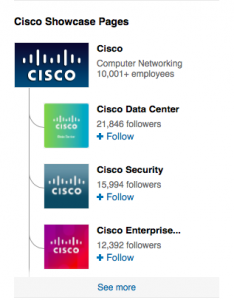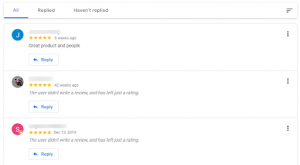Tips for using AI in your email marketing and copywriting without losing the personal touch consumers crave.

It is 2024, and we’ve all heard how AI can improve our email marketing efforts. But as we dive into generative AI tools like ChatGPT, it doesn’t take long to realize AI can yield lackluster results, inconsistent and off-brand content and campaigns that feel average.
As AI use in business grows, too many companies and solo entrepreneurs try to use it to replace jobs. They become obsessed with how it can create productivity. Yet, it’s important to recognize AI’s proper role — a technology that saves you time and grows the business by enhancing your work, not entirely replacing it.
With each new AI tool for email marketers, it is crucial the content and campaigns created with them maintain a personal touch and not diminish the brand experience.
Why making your email efforts impersonal is bad for business
Let’s take a look at Chick-fil-A and McDonald’s. They are both fast food companies using AI technology during the food ordering process.
McDonald’s uses technology to reduce employee interaction. When you enter a McDonald’s, you’re greeted by a kiosk for placing your order, not an employee. In the drive-thru, the first question might be, “Did you use the app?”
McDonald’s encourages customers to interact less with their staff.
In contrast, Chick-fil-A equips employees with handheld devices and puts its people outside for face-to-face greetings. Customers can place their orders even without entering the restaurant. This approach enhances the customer experience with AI.
As you can see, one has used AI to make their process less personal, while the other has created a much more enjoyable human-to-human experience. How does that translate to sales?
Chick-fil-A dominates over McDonald’s with average store sales of $ 9.3 million, compared to the Golden Arches’ $ 3.7 million. This is impressive, considering Chick-fil-A is only open six days a week compared to McDonald’s’s seven-day workweek.
In 2020, a report by experience management firm Walker predicted customer experience would overtake price and product as the key brand differentiator. The research seems to have come true. Just look at the example above.
Instead of using AI solely in ways that benefit our companies, we need to use it to create a more enjoyable human experience through the content we create.
How to use AI in email marketing while ensuring a human experience
Generative AI
When you think of AI in email marketing, you probably think of using it to write email content. Tools like ChatGPT have a lot of potential for this.
- Fully written email campaigns.
- Subject line generation.
- Rewriting drab prompts and templates.
- Summarizing bulk messages.
- Sequence framing and outlines.
But the words in your emails reflect your brand’s identity. It’s important to use tools like ChatGPT to improve writing, not to do all of it for you.
Use it to first brainstorm ideas, then outline and draft. After the draft, refine and edit without AI. At this stage, you have to focus on personalization and brand voice. When that draft is done you can run it through AI which can spot spelling and grammatical problems, format it and be ready for your email service provider.
Let’s look at an example of a ChatGPT response. The prompt was to write a sales email for a new product in the pickleball industry.
Subject Line: Discover the Game-Changer: Our New Pickleball Paddle!
Hi [Recipient’s Name],
We’re excited to introduce our latest innovation: the ProX Pickleball Paddle! Designed for players of all levels, the ProX Paddle offers:
Superior Control: Enhanced grip and lightweight design for precise shots.
Durability: Built to withstand intense matches and practice sessions.
Performance: Engineered for power and accuracy to elevate your game.Ready to take your pickleball skills to the next level? Get your ProX Paddle today and dominate the court!
Order now and enjoy a special launch discount of 15%! [Insert Link]
See you on the court!
Best,
[Your Name]
[Your Company]
[Contact Information]P.S. Act fast — this offer is only available for a limited time!
How to humanize this newsletter
- Shorten the subject line.
- Add a photo or short video of people using the product.
- Add more language about who is the perfect customer for this product.
- Share with the reader the exact time the special offer expires.
Now, let’s look at this same example when edited by a human using the above tips:
Subject: game changer? You be the judge!
Hi [Recipient’s Name],
Okay! So we’ve been hinting for the last month or so and we’re finally ready to reveal our latest innovation: the ProX Pickleball Paddle! Designed for players of all levels, the ProX Paddle offers:
Superior Control: Enhanced grip and lightweight design for precise shots.
Perfect for people who like to play pickleball all afternoon or for those just starting to figure out that perfect grip.Durability: Built to withstand intense matches and practice sessions.
No switching out paddles halfway through a session or running to the sporting goods store once a month.
Performance: Engineered for power and accuracy to elevate your game.
Who doesn’t need more of that?Let’s take your pickleball skills to the next level, [Recipient’s Name].
Of course, since you’re on our email list, you are getting first dibs on the ProX Paddle with a special launch discount of 15%! [Insert Link] This discount is valid through Friday, the 26th.
[INSERT IMAGE WITH CLICKABLE LINK TO BUY]
See you on the court!
[Your Name]
[Your Company]
[Contact Information]P.S. If you click right here, that email-list only discount is automatically applied. No coupon code needed!
As you can see, using ChatGPT to stop writing from scratch is great. But we must take what ChatGPT gives us and make it complete by editing.
Analytical AI
Marketers are under more pressure than ever — faster deadlines, stricter budgets and fewer resources. Fortunately, AI tools are helping engagement metrics and sales grow steadily.
Analytical AI tools within an email service provider can identify:
- Your most engaged customers.
- Customers that need to be re-engaged.
- Ideal times to reach out to past customers and potential leads.
These are essential to growth in this modern, fast-paced/low budget era. Once identified, the AI sorts these customers and leads into email segments and can engage with personalized content.
For example, Black River Farm and Ranch uses AI segmentation to identify first-time campers and invite them on a personal tour of the campus.

On the customer service side, this ensures the customers get a personalized experience and feel great about their purchase right from the start. In return, this type of email helps with customer retention. After all, the best customer is a repeat customer.
How to humanize this email
- After AI has sorted these customers for you, ensure your content has some personalization.
- Add the name of the session the camper is attending or the dates.
- Consider addressing the camper or camper’s guardians by name in the email.
Here is another example from Business Insider. This email was sent to a paid subscriber who had canceled their subscription within the last seven days. They used AI to identify that customer and sent out a limited offer.

How to humanize this ‘last chance’ email
This is a great “buy-back” email. However, the brains behind this campaign could have gone just an extra inch (because who has the time or the budget to go the extra mile?) to ensure a sale by adding a bit of a personal touch to this email.
Especially for a large brand like this, a quick and simple personalization at the top of the email will go a long way in gaining more attention and bringing back customers.
Even the least savvy consumer can tell this is a mass-produced email and possibly completely AI-generated.
A quick personalization at the top of the email is suggested here.
- “FNAME! Business Insider has a deal just for you but today is the last day to save!”
Another suggestion might be:
- “FNAME! We know you canceled but we’d like to offer you something one last time.”
The email could go even further and offer reasons they believe the customer canceled:
- “Purse strings tight right now but still need Business Insider to be on point with business and tech? We get it, FNAME. Here’s a last chance offer to save 80% until the end of the day.”
4 tips for using AI in your email marketing campaigns
1. Use AI to produce ideas, not full emails
It can be tempting to insert a prompt into ChatGPT or Gemini and copy and paste its answer into your email newsletters and campaigns. However, doing so will result in generic content that receives almost no positive feedback from potential and current customers.
Instead, AI can be used to generate ideas, outlines and rough drafts. Always edit and customize AI-generated content according to your company’s brand voice, emphasizing a human-to-human connection.
2. Ensure relevance and personalize
Have I mentioned how impersonal and generic AI-generated content can be? When creating campaigns or outlines with AI, don’t be afraid to differentiate from what the AI source is giving you. Keep your brand in mind and personalize it with names, images and other data about the reader.
Also, ensure it is relevant to your reader. Take what you’ve learned from analytical AI and decide what kind of messages, sales and stories need to be sent to each segment of your list.
Even if you’ve entered all the information into your AI tool, it’s always a good idea to double-check to ensure your campaigns are relevant to the reader and personalized for the best experience.
3. Fact-check
AI might not always be right, especially with content creation. Fact-check what it gives you to ensure the information you send is 100% accurate.
4. Use it to enhance existing strategies
AI has made a complicated marketing strategy like email much easier in the last year alone. It’s an amazing tool, but beware! AI-created content should enhance, not replace, what you are already doing.
For example, if you’re writing a new launch campaign for a new product, instead of asking ChatGPT to write each email, ask it for five new hooks that would appeal to your ideal buyer. Or ask it for the top-performing launch emails of the previous year.
AI-assisted, human-refined: The future of email marketing
Using AI in your email marketing efforts will create more effective campaigns and save you much creative time. However, it’s important to not computer-generate humans out of the whole experience. Customers still crave a human experience, so be sure to use AI to enhance what you’re already doing within your email marketing efforts, not completely replace it.
The post How to use AI in email marketing without losing the human touch appeared first on MarTech.
(7)
Report Post






